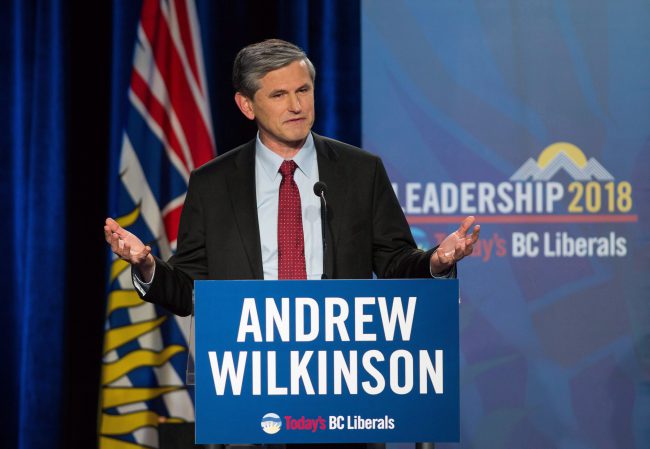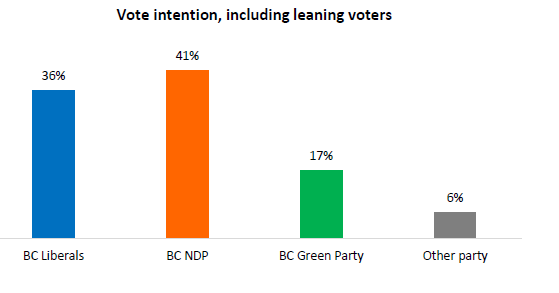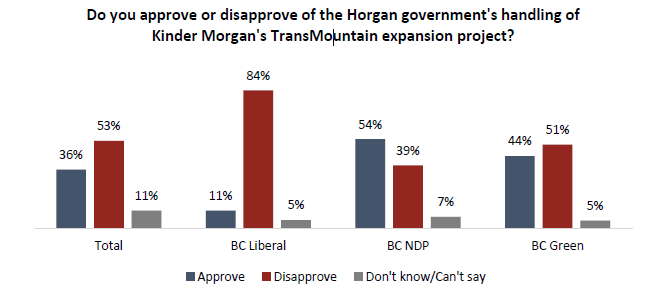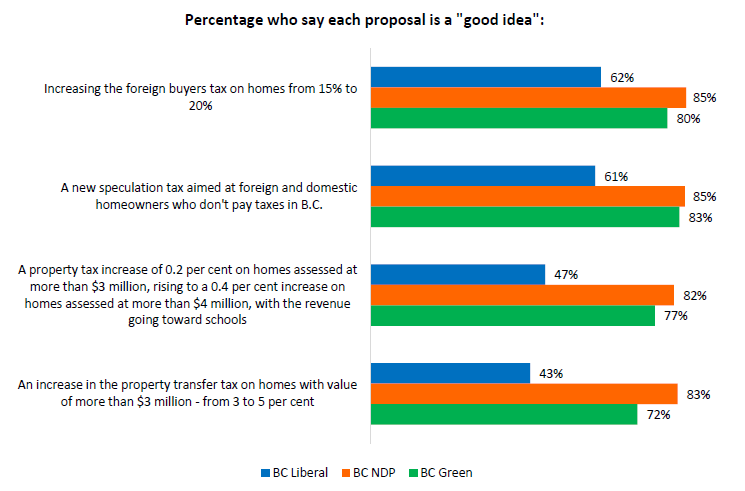One year after the provincial election — and 10 months after they took power in a minority government — the BC NDP are implementing housing measures that have won the approval of many BC Liberal voters, a new poll shows.

But that doesn’t mean the BC NDP has won majority support for the job they’re doing.
Coverage of the BC NDP’s housing measures on Globalnews.ca:
Most past supporters of B.C.’s three main political parties approved an increase to the foreign buyers’ tax and a speculation tax, said a poll released by the Angus Reid Institute on Wednesday.
The poll found that the increase to the foreign buyers tax from 15 per cent to 20 per cent had the approval of 85 per cent of BC NDP supporters, 80 per cent of BC Green Party supporters — and 62 per cent of BC Liberal supporters.
Support levels were similar for the speculation tax, a measure aimed at domestic and foreign homeowners who don’t pay taxes in B.C.
Support was more muted — but still noticeable — among past BC Liberal supporters for new measures that targeted homes assessed at more than $3 million.
Those measures include a property tax increase of 0.2 per cent, with the money intended for schools.
Nearly 50 per cent of BC Liberal supporters thought that was a “good idea.”
Meanwhile, 43 per cent of BC Liberal supporters liked the move to increase the property transfer tax on homes valued at more than $3 million, from three to five per cent.
READ MORE: Protesters gather in Vancouver to bash ‘predatory’ school tax on $3M homes
The number of past BC Liberal supporters who like the housing measures is “significant,” Angus Reid Institute executive director Shachi Kurl told Global News.
And the poll results are a sign that people’s feelings on housing affordability aren’t “totally politically or ideologically driven,” she added.

BC Liberal leader Andrew Wilkinson has played an active role opposing the school tax increase, calling it a “potentially devastating proposition for ordinary homeowners in our real estate market.”
A stance like that could represent a missed opportunity for the party to grow its base, Kurl said.
“They have doubled down and retrenched and very solidly defended their traditional base,” she said.
READ MORE: Vancouver school tax protesters turn their anger on UBC housing prof, who’s teaching ‘hate’
The BC NDP’s housing measures may have found support across political lines.
But that doesn’t mean they’ve won majority support for the job they’re doing in government.
The poll had 42 per cent of respondents saying that B.C. was on the wrong track.
It also had 29 per cent of respondents saying the province was on the right track, while 28 per cent said they weren’t sure.
The needle also hasn’t moved much when it comes to voting intention since the provincial election, the poll showed.

The Angus Reid Institute found that 41 per cent of respondents planned on voting for the BC NDP, versus 36 per cent for the BC Liberals.
That’s not a big change for the BC NDP from the 2017 election, when the now-governing party took 39.86 per cent of the popular vote, while the BC Liberals took 40.84 per cent.
“There’s been a little bit of movement but not a lot,” Kurl said.
“Andrew Wilkinson has barely been in the role for three months, and I think that’s bought some energy in terms of the media file.”
“But beyond the very solid Liberal base that, again, hasn’t really budged and can always be counted on, it’s not as though that party has had a lot of success stealing votes from the government.”
READ MORE: Support for the Trans Mountain expansion grows amid pipeline dispute
While many BC Liberal supporters appear to support the housing measures, a sizable number of BC NDP supporters don’t approve of how the government has handled the Kinder Morgan file.
Across B.C., 53 per cent of respondents said they didn’t approve of how the BC NDP has tackled the expansion of the Trans Mountain pipeline.

Among BC NDP supporters, 39 per cent said they disapproved, compared to 54 per cent who said they approved of the party’s performance on the file.
There may be an opportunity for the BC Liberals if they hone in on the pipeline issue, Kurl said — especially after a previous poll showed pipeline support growing in B.C.
So far, the BC Liberals haven’t been able to “reach across the divide and grow the number of voters, particularly in and around Metro Vancouver,” Kurl said.
Change the focus, and maybe then they can do that.
METHODOLOGY: The Angus Reid Institute conducted an online survey from May 4 – 7, 2018, among a representative randomized sample of 809 adult B.C. residents who are members of Maru Voice Canada. For comparison purposes only, a probability sample of this size would carry a margin of error of +/- 3.4 percentage points, 19 times out of 20. Discrepancies in or between totals are due to rounding. The survey was self-commissioned and paid for by ARI. Detailed tables are found at the end of this release.










Comments